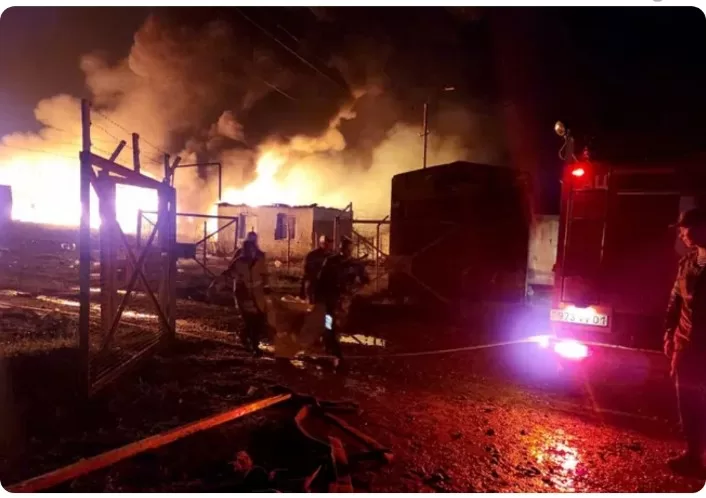In a devastating turn of events, a powerful explosion has rocked the Nagorno-Karabakh region, leaving dozens of lives feared lost and hundreds wounded. The incident occurred at a fuel storage depot near the regional capital, Stepanakert, under circumstances that remain shrouded in mystery.
As of the latest reports, local Armenian authorities have confirmed 20 fatalities, while a staggering 290 individuals have been admitted to hospitals, with many in critical condition. Regrettably, the death toll is anticipated to rise significantly, as more than 100 people are still listed as missing.
Medical facilities in Stepanakert find themselves overwhelmed, prompting calls for an urgent airlift of critically injured patients to Armenia. A hospital official lamented their dire situation, citing an exhaustion of medical resources, including essential anti-burn antibiotics. In response, Armenian officials have dispatched a team of doctors via a medical helicopter from Yerevan, while Russia has also mobilized helicopters for the evacuation of survivors to Armenia.
Artak Beglaryan, a former human rights ombudsman for the breakaway Nagorno-Karabakh government, has reported that numerous individuals remain in critical condition, with unconfirmed estimates suggesting that over 100 people were fully burned in the fire.
This tragic explosion unfolded at a fuel depot located in Berkadzor, roughly 6 kilometers outside Stepanakert. Local residents had been promised access to petrol to alleviate severe shortages of food and fuel caused by a 10-month Azerbaijani blockade of Nagorno-Karabakh, which also resulted in electricity and water supply disruptions.
The timing of this catastrophe is particularly grim, occurring shortly after the Azerbaijani military swiftly reclaimed control of the region in a recent offensive. Thousands of ethnic Armenians have been streaming out of the breakaway territory in the wake of these events.
While local Armenian forces have laid down their arms following the Azerbaijani offensive, concerns of ethnic cleansing have emerged. Many refugees and Armenian officials accuse Azerbaijan of employing the blockade and war to forcibly displace the ethnic Armenian population from the territories.
Samantha Power, the head of the US Agency for International Development, called for international organizations to gain access to Nagorno-Karabakh. The US has pledged $11.5 million in humanitarian aid for Karabakh refugees.
As the humanitarian crisis deepens, over 19,000 refugees have crossed into Armenia since the border opening, with queues forming at petrol stations and exhausted travelers navigating challenging conditions.
In a glimmer of hope, talks between Azerbaijani and Armenian officials, with the involvement of international leaders, have taken place to discuss the Armenia-Azerbaijan peace process and broader issues. A meeting between the Armenian prime minister and the Azerbaijani leader is tentatively scheduled for October 5 in Granada.
In these trying times, international support and assistance are paramount to alleviate the suffering and address the complex challenges facing the Nagorno-Karabakh region.







